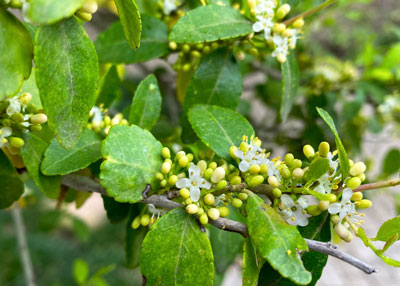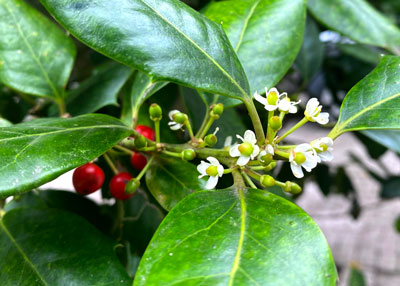The Birds, the Bees and the Hollies
I’m often asked why some hollies never have berries.
The most common cause for failure of hollies to set fruit is because you have a male plant that produces only pollen.
You can identify male plants while hollies are blooming. Look closely at the individual flowers. If you see four anthers holding pollen up and out of the flowers, those are male blooms.
If, on the other hand, you see a swollen base within the flower, that is the ovary. It will be shaped like a tiny bowling pin, and that is the primordial fruit waiting to be fertilized by pollen carried from a male flower by bees.
Most hollies are “dioecious,” meaning that they have their male and female flowers on two separate plants. A botany professor once told us, “That’s ‘di-,’ as in ‘two houses’.” That list would include American, yaupon and possumhaw hollies, among most others.
Some hollies, however, notably Nellie R. Stevens, Willowleaf and dwarf Burford, bear both male and female flower parts within the same flowers. Those are referred to as “monoecious” plants. “That’s ‘mon’ as in ‘one house’.”


Obviously, there are two other possible causes of poor fruit set on hollies:
Poor bee activity while plants are in bloom, and
A late freeze that destroyed the young fruit.
But my experience has been that most people didn’t realize they had bought a male holly plant. It pays to know your nursery stock dealer and ask plenty of questions beforehand.
